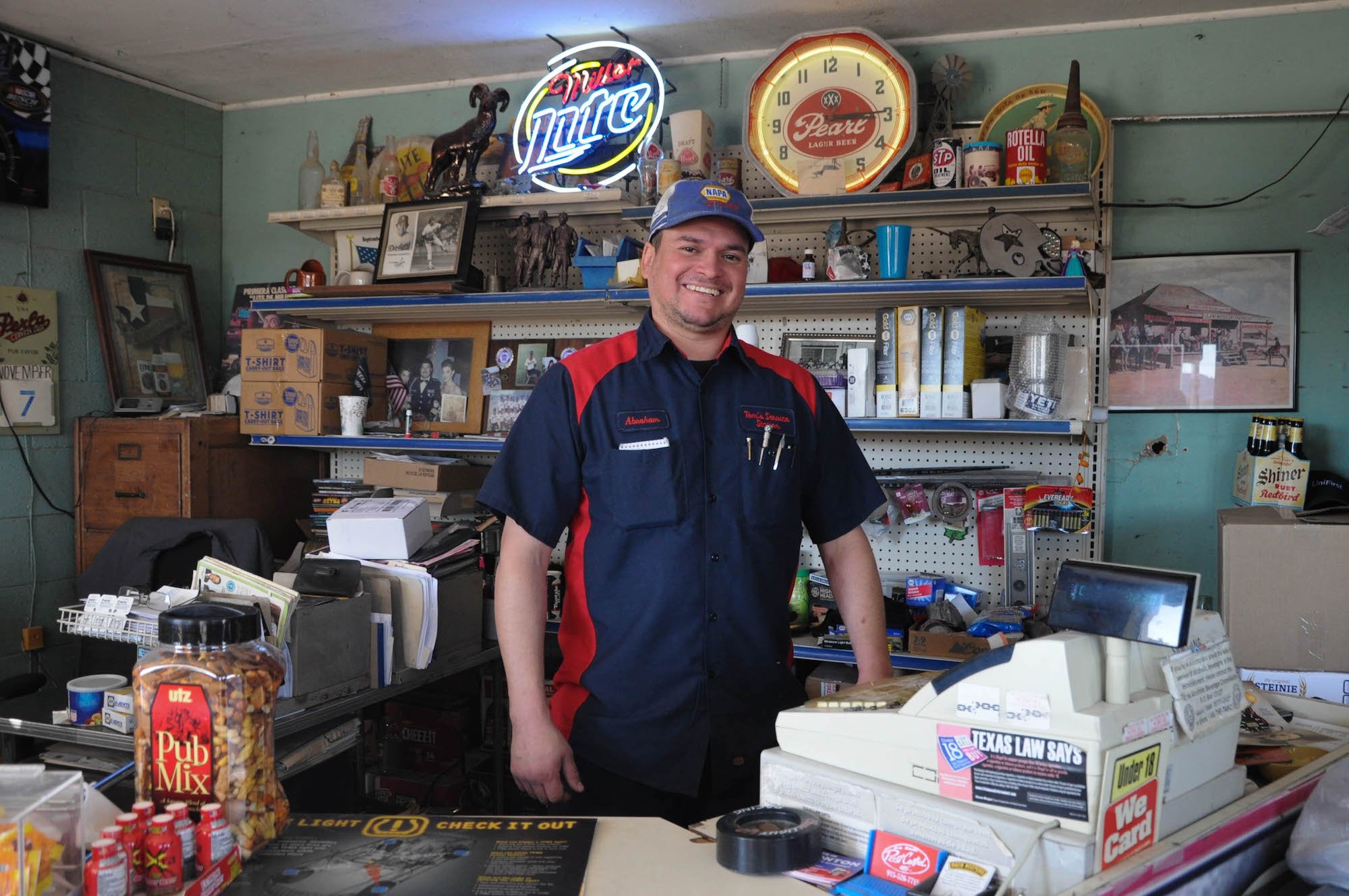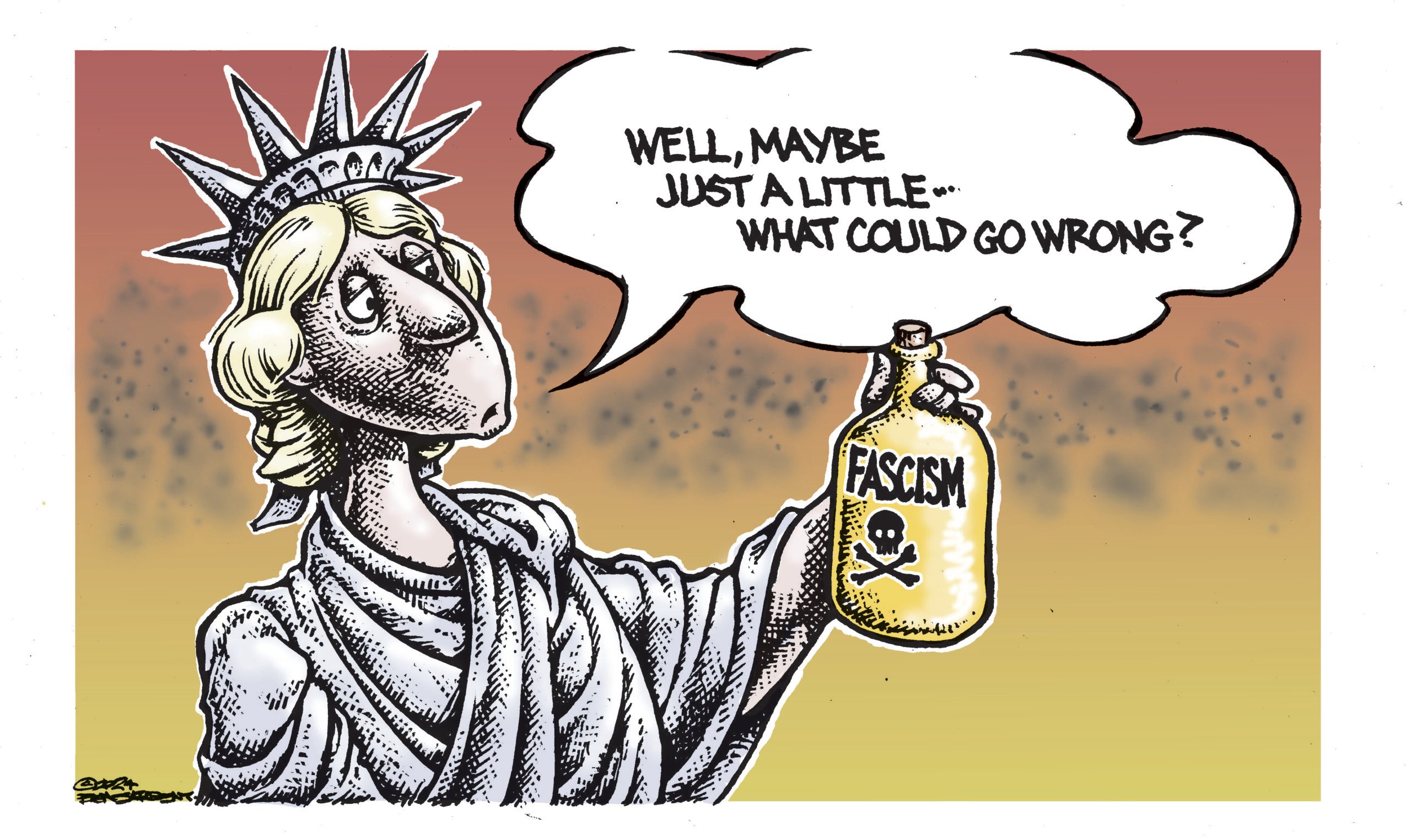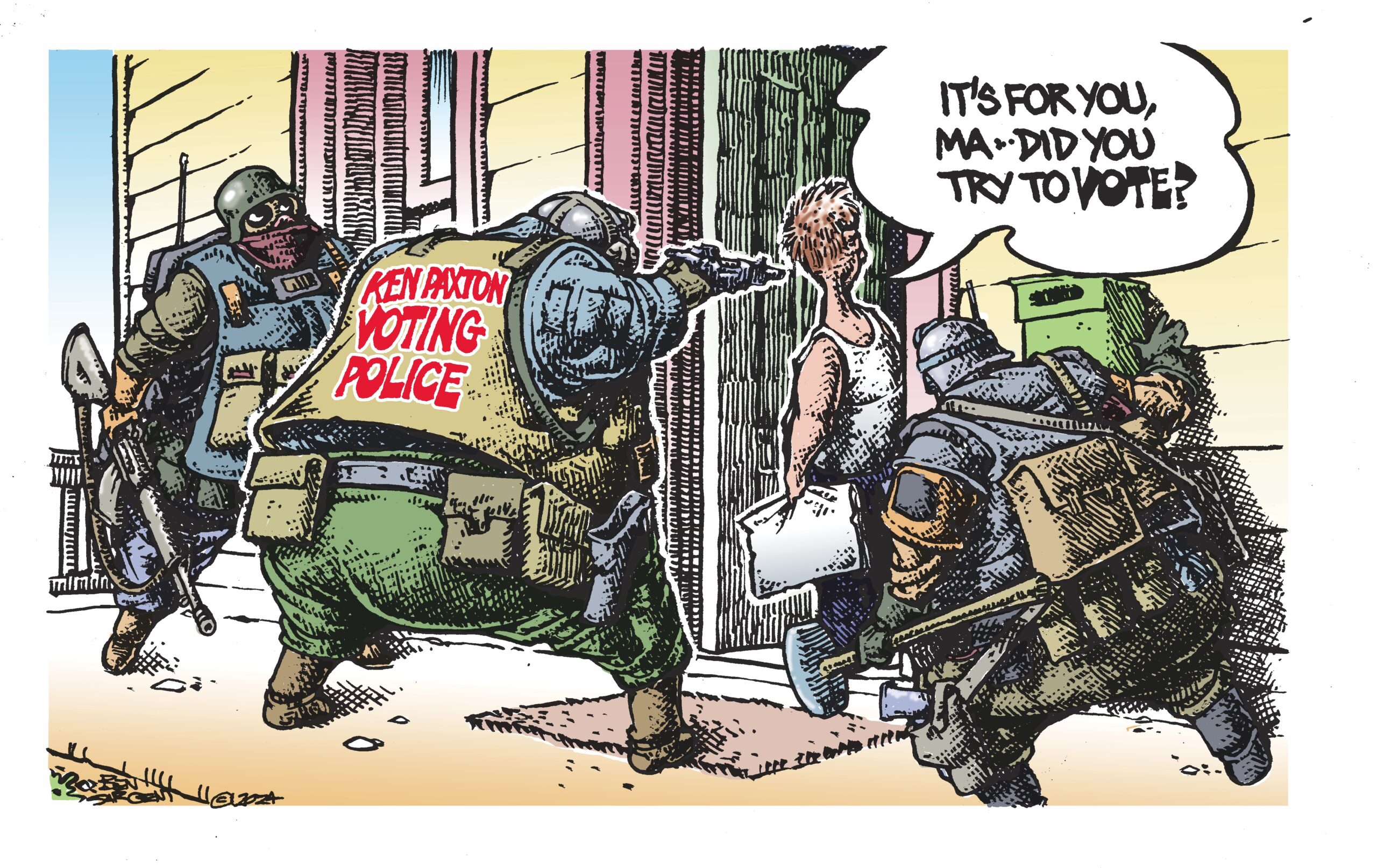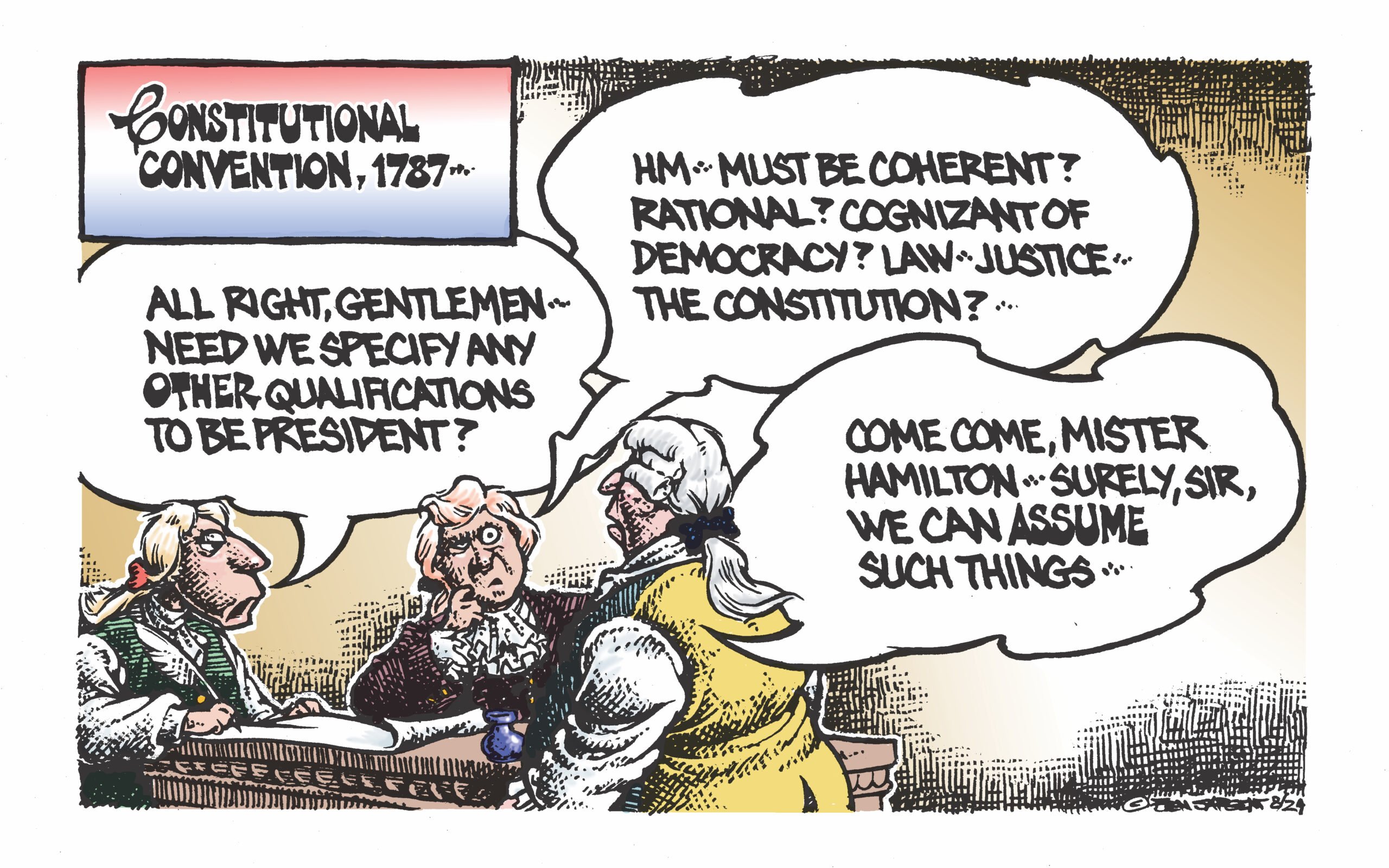
‘I Wish I Could Vote’: An Ex-Felon’s Election Day
A Presidio man with a criminal history finds out too late that he's eligible to vote.

PRESIDIO — Abraham Ornelas will not cast a vote this Election Day. He didn’t know that he could.
Ornelas, a resident of Presidio, a border town of 6,000 people 60 miles south of Marfa, is a convicted felon. In 2008, Ornelas was convicted of aiding and abetting a drug offense (he helped his friend smuggle drugs across the border), and sentenced to 37 months in prison. He completed his sentence in 30 months, and fulfilled his five-year probation in just over two years, thanks to good behavior.
“I paid my debt to society; I’ve done everything by the book afterwards. I don’t have a single speeding ticket, traffic ticket, any kind of violation,” he told me at his family’s auto mechanic shop, where he works. “I’m going almost on nine years this February from the date of my conviction. I haven’t done anything else wrong.”
Ornelas volunteers as a Little League umpire; he helps during citywide fundraisers. And he is the proud father of two.
Until this week, he thought he had lost the right to vote for good.
“I wish I could vote, period,” he said. “I wish I could go back to my God-given rights as an American citizen”
In Texas, individuals convicted of felonies are ineligible to vote while incarcerated, or on parole or probation. Voting rights are immediately restored once the felon has completed his or her punishment, including parole, supervision or probation, though registration is still required.
But many ex-offenders don’t know that their rights have been restored. Nobody told Ornelas, not even his attorney, and now it’s too late for him to vote this election.
“I just went to the DMV recently and when they asked me if I wanted to register to vote, I told them I was a convicted felon,” he said. “They didn’t say anything about it.”
There are 6.1 million Americans prohibited from voting because of felony disenfranchisement restrictions. In 2010, there were more than 530,000 Texans — some 2.91 percent of the eligible voting population — prohibited from voting due to the state’s felony disenfranchisement laws, according to The Sentencing Project.
Of course that figure doesn’t include people like Ornelas, who served their time but have failed to re-enter the system because they don’t know their rights.
Ornelas expressed a mixture of enthusiasm and hesitation at the news of his re-enfranchisement. “Are you sure?” he asked me. “I don’t want to get in trouble for registering to vote.”


